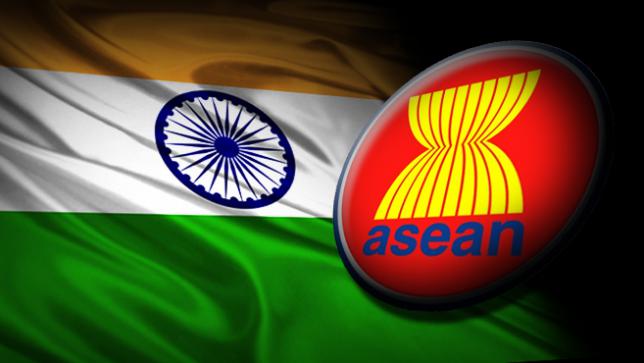
MINISTERS from Asean countries and India plan to work together to resolve key issues related to a proposed regional free-trade pact when they meet next month in Manila, Commerce Minister Apiradi Tantraporn said yesterday.
The ministers had informal talks on the possibility of wrapping up the free-trade negotiations after Prime Minister Prayut Chan-o-cha made positive comments on the matter, Apiradi said on the sidelines of the Asean-India Expo and Forum in Bangkok.
She said India had pushed hard to open service sectors in which it has a competitive advantage, but Asean is reluctant to agree to that.
Prayut expressed confidence that the Regional Comprehensive Economic Partnership (RCEP) will get the green light this year as planned.
In his keynote speech at the Asean-India Expo and Forum, the Premier said he believed that the 10- member Association of Southeast Asian Nations along with India, China, Japan, South Korea, Australia and New Zealand would reach agreement on the free-trade proposal.
He urged them to narrow their differences in order to reach an agreement that would lead to a win-win outcome for everyone.
Prayut cited opportunities in trade, investment and transport that would benefit Asean and India, such as linked roads and seaports in Myanmar, Thailand, Laos, Cambodia and Vietnam. He also urged the adoption of an “open skies” policy.
Apiradi said trade ministers will try to agree on the major outstanding issues related to the RCEP at the September meeting in Manila.
Ramon Lopez , secretary of the Philippines’ Trade and Industry Department, said the RCEP negotiations had progressed significantly and agreement should be reached as soon as possible .
“If we cannot 100 per cent agree this year, it would be next year,” he told the conference.
Meanwhile, Nirmala Sitharaman, India’s Minister of Commerce and Industry admitted that in the past foreign investors found it difficult to do business in India, given many sectors were closed off and there was bureaucracy and red tape in government services .
“India has now reformed and opened its economy,” Sitharaman said. “There are lots of opportunities for investment as the country has a large scale of infrastructure investment planned for every part of the country to be linked by rail and road networks. There are also 100 smart cities projects, she said.
Sanan Angubolkul, chairman of Thailand-India Business Council, said he has done business in India for 14 years. At first it was difficult, he said, but the country had “totally changed” due to the reform by the Modi government. He said he runs a direct sales business there and has recruited 100,000 housewives to work for his business.
According to statistics from the Ministry of External Affairs of India, Asean is now India’s fourth-largest trading partner, with annual trade valued at US$65 billion (Bt2.16 trillion) in the last two years.
However, Arjun Goswami, technical adviser to Asian Development Bank, said these trade numbers are relatively small and there is plenty of room for expansion.
The Asean-India Expo and Forum continues until August 5 at the Queen Sirikit National Convention Centre in Bangkok, marking the 25th anniversary of relations between the two sides.
Source: The Nation
Share: